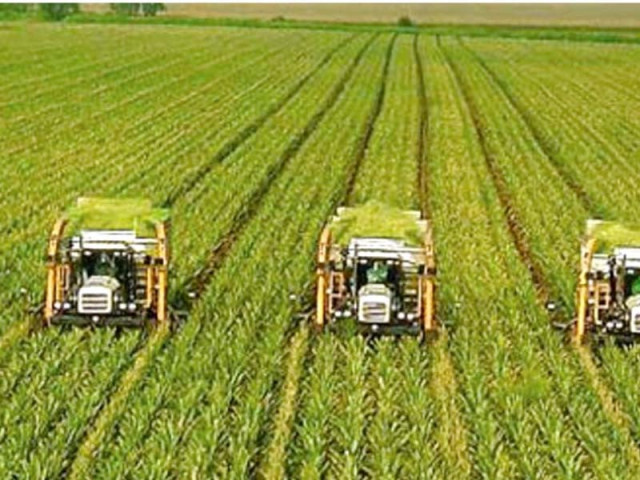Agri allocations boosted by 62%
CM unveils Rs30.7b allocation, introduces new initiatives to combat climate impact, rising costs

Sindh Chief Minister Syed Murad Ali Shah presented the provincial budget for 2024-2025 on Friday, announcing an agricultural budget allocation of Rs30.7 billion, a 62% increase from last year’s Rs18.9 billion, highlighting the Sindh government’s commitment to farmers. The agriculture budget covers five functions: administration/land commission, agricultural research and extension services, plant protection and locust control, information and statistics, and nutrition and hygiene programmes.
Speaking about the Benazir Haari Card, the Sindh CM said, “Our bond with Haris (farmers) of Sindh is based on our commitment to improving their livelihood. High inflation affects every segment of society. Salaried classes get relief through increased salaries, and labour is taken care of through increased minimum wages, but the most affected class is our farmers, who are facing the consequences of climate change and increased input costs. To provide relief, the Sindh government is providing financial assistance to all farmers with land measuring 12.5 acres or less without any discrimination. The registration process of approximately 788,000 out of 1.2 million farmers will be completed as soon as possible. Therefore, Rs8 billion is allocated in FY2024-2025 for disbursement to farmers based on per acre slabs.”
Highlighting the Benazir Women Agriculture Workers Assistance programme, he said, “Women empowerment is the remedy to societal imbalances. Women play a pivotal role in provincial economic development. On this account, Rs500 million is earmarked for the Benazir Women Agricultural Workers Programme. This programme will improve the agricultural output and living standards of rural women associated with the agriculture sector.”
He discussed the devastating floods of 2022, which caused losses to 80% of the standing crops in the province. The Sindh government took prompt action for the revival of the agriculture sector. Initially, the minimum support price (MSP) of wheat was increased from Rs2,200 per 40-kg (2021-2022) to Rs4,000 per 40-kg (2022-2023) to encourage farmers to grow wheat for the Rabi season. A total of 147,446 farmers were provided Rs3.447 billion through BISP for the reimbursement of wheat seed.
The proposed allocation for the irrigation sector stands at Rs35.9 billion, compared to Rs25.7 billion last year, showing a 40% increase. The agriculture budget stands at Rs30.7 billion, compared to Rs18.9 billion last year, representing a 62% increase, reflecting the Sindh government’s commitment to farmers, he said.
Sindh Abadgar Board President Mehmood Nawaz Shah told The Express Tribune that while the increase in the agriculture budget is laudable, most of it would go into salaries for the agriculture research and extension departments’ employees due to significant salary rises. He stressed the need for proper and effective utilisation of allocated funds so that growers could benefit.
He highlighted that growers are producing better crops such as wheat, cotton, and rice but are not getting better prices, which discourages them. He urged the government to take initiatives to control the cost of agriculture inputs and reduce rising production costs. He also stressed the importance of focusing on research, development, and value addition in horticulture for the growth of the agriculture sector.
Meanwhile, the Sindh CM also mentioned the Benazir Mazdoor Card, reiterating the government’s aim to benefit the labour segment of the province. “We have proposed the introduction of the Benazir Mazdoor Card for labourers registered with the labour department. The holder of the Benazir Mazdoor Card will be eligible for incentives including full medical coverage, cash benefits, employment injury grants, Iddat compensation, maternity coverage, death grants, disablement gratuity/pension, survivors’ pensions, workers’ welfare fund cash grants, marriage grants, and education grants or scholarships. Funds of Rs5 billion have been reserved from the Workers Welfare Fund (WWF) in the next FY 2024-2025 for the effective implementation of the scheme.”



















COMMENTS
Comments are moderated and generally will be posted if they are on-topic and not abusive.
For more information, please see our Comments FAQ